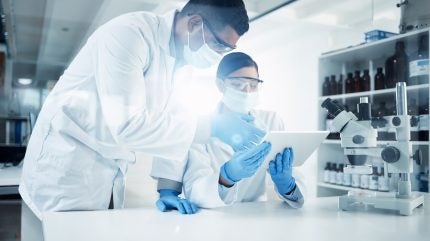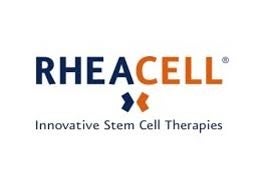
Despite their potential to revolutionise medicine, stem cell therapies have long faced scepticism within the pharmaceutical industry. Concerns about the scientific complexity, regulatory hurdles, and clinical failures have contributed to a cautious approach.
However, perspectives are shifting as advancements in research and successful clinical trials demonstrate the promise of stem cell therapies. RHEACELL is recognised as a leading integrative biopharmaceutical stem cell company that conducts numerous national and international multicentre clinical trials together with world-leading experts, some of them already as Phase 3 clinical trials. In close coordination with the respective regulatory authorities and under the strictest scientific biopharmaceutical and regulatory frameworks, their innovative stem cell therapies could soon be a new treatment option for diseases that have long been considered untreatable. Currently, only 5% of approximately 6,000 to 10,000 known rare diseases are treatable, and many companies are shying away from the financial outlaw in view of low patient numbers.
Based on the principle of action of so-called ABCB5-positive mesenchymal stem cells (MSCs), RHEACELL has an extensive pipeline for use in rare, severe immune and inflammatory diseases, such as the treatment of epidermolysis bullosa (EB), also known as “butterfly disease”.
The goal within reach: Further development of ABCB5-positive MSCs to market maturity
RHEACELL, headquartered in Heidelberg, Germany, has been at the cutting edge of stem cell research for more than two decades. Originally founded as TICEBA in 2003 by Dr. Christoph Ganss, the company has evolved into a leading specialist in stem cell therapeutics. RHEACELL has focused on the development of ABCB5-positive MSCs, a specific subset of stem cells that have shown remarkable anti-inflammatory and regenerative properties.
ABCB5-positive MSCs are derived from skin tissue and possess unique characteristics that differentiate them from other types of stem cells. These cells express the ABCB5 transporter, which plays a crucial role in protecting tissues from damage and promoting repair. The innovative use of these cells in treating chronic and inflammatory conditions offers a new avenue for patients who have exhausted conventional therapies.
“I have always been interested in the connection between research, medicine and business. I worked as a doctor in a clinic for many years. Then the opportunity arose to start a business. I seized this opportunity,” says Dr Ganss. “Our ABCB5+ mesenchymal stromal cells as a pure active ingredient can significantly improve the lives of many patients and have the potential to represent a real turning point in the treatment concept for these diseases. We are already receiving thank-you letters from participants in our clinical trials, whose quality of life has improved significantly. This is what drives all of us in the company.”
Our mission beyond business: to make life with rare diseases worth living again
Epidermolysis bullosa (EB) is a rare and devastating genetic skin disorder that affects approximately 500,000 people worldwide. Known as “butterfly disease” due to the fragility of the skin, EB causes painful blisters and wounds that severely impact the quality of life. In its most severe forms, the disease can lead to scarring of internal organs, malnutrition, and even early death.
Despite the severity of EB, there is currently no cure for the disease, and treatment options are limited to managing symptoms. This is where RHEACELL’s innovative approach with ABCB5-positive MSCs comes into play. These stem cells have demonstrated significant potential in promoting wound healing and reducing inflammation, offering a much-needed therapeutic option for EB patients.
RHEACELL’s commitment to this cause has been recognised by regulatory authorities. In December 2023, the U.S. Food and Drug Administration (FDA) awarded RHEACELL a Rare Pediatric Disease Priority Review Voucher (RPDD) for their work on EB. This was followed by a Regenerative Medicine Advanced Therapy (RMAT) fast-track designation in February 2024. These designations are designed to accelerate the development and review of promising treatments for serious and life-threatening conditions.
“The FDA’s positive assessment for accelerating our clinical development programme for butterfly disease is of great importance to those affected in view of their enormous suffering,” says Dr Ganss, “but it is also an important confirmation of the therapeutic concept of regenerative, anti-inflammatory ABCB5+ MSCs as a new promising therapeutic option for rare diseases, which we will now continue to develop at full speed after a successful phase 2a study.”
Mastering challenges with a clear mission in mind
While the focus on epidermolysis bullosa is a critical part of RHEACELL’s mission, the potential applications of ABCB5-positive MSCs extend beyond this rare disease. These stem cells have shown promise in treating a range of inflammatory and degenerative conditions, particularly those with high unmet medical needs.
One of the company’s significant achievements was the national marketing authorisation granted by the Paul-Ehrlich-Institute in Germany for the use of ABCB5-positive MSCs in treating chronic venous ulcers (CVU). This marked only the second somatic cell product to receive such approval in Germany, underscoring the groundbreaking nature of RHEACELL’s work. Dr Ganss and his team continue to explore other therapeutic areas, including additional inflammatory-degenerative diseases. The company’s pipeline is robust, with several ongoing clinical trials aimed at expanding the use of ABCB5-positive MSCs in other conditions that currently have limited treatment options.
“We will develop other drugs that we have in the pipeline clinically and bring them into approval,” Dr. Ganss explains. “Since we will have to massively increase our production capacities in the near future in order to be able to meet the emerging global demand for our cells, we will expand and also look for partners for global commercial marketing.”
Overcoming challenges and building a legacy
The journey to develop and bring ABCB5-positive MSCs to market has not been without challenges. Stem cell research is a complex and highly regulated field, and RHEACELL has faced its share of scepticism and regulatory hurdles. However, the company’s persistence and dedication to rigorous scientific standards have paid off.
“At the beginning of our work, we were met with a lot of scepticism in Germany,” Dr. Ganss recalls. “No one could have imagined that we could isolate stem cells from the skin and multiply them. However, we did not let ourselves be deterred and managed to develop a corresponding drug against much resistance. The positive feedback from the regulatory authorities on our clinical development program is a great incentive for us. It is also an important confirmation of the therapeutic concept of regenerative, anti-inflammatory ABCB5+ MSCs as a new promising therapeutic option for rare diseases. And we will now work flat out on clinical development and market access,” says Dr. Ganss.
References:
- Gebrauchs- und Fachinformation AMESANAR®
- Vander Beken S et al. (2019). Positive Dermal Mesenchymal Stem Cells Promote Healing of Chronic Iron-Overload Wounds via Secretion of Interleukin-1 Receptor Antagonist. Stem Cells. 37:1057-1074. DOI: 10.1002/stem.3022
- Riedl J. et al. (2020). ABCB5+ dermal mesenchymal stromal cells with favorable skin homing and local immunomodulation for recessive dystrophic epidermolysis bullosa treatment. Stem Cells 39:897-903. DOI: 10.1002/stem.3356


